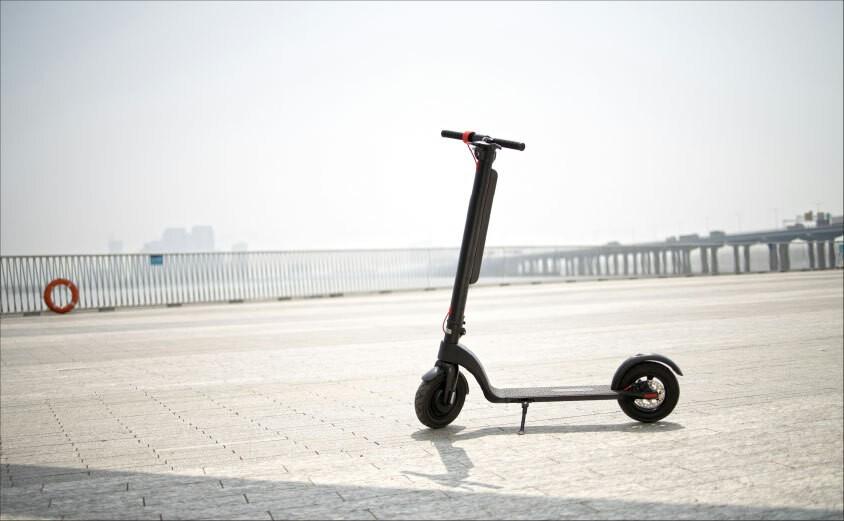China E-Scooter Rental Market Poised for Accelerated Growth Amid Rising Urban Mobility Demand and Eco-Tourism Push

The China E-Scooter Rental Market is experiencing remarkable growth, fueled by rapid urbanization, strong consumer adoption, and government-supported sustainability initiatives. As cities become increasingly congested and younger populations seek affordable, flexible, and eco-friendly commuting options, the market has emerged as one of the fastest-growing segments within China’s shared mobility landscape.
China E-Scooter rental market size was valued at USD 80.4 million in 2023 and is estimated to reach a value of USD 291.3 million by 2030 with a CAGR of 21.8% during the forecast period. The rise of dockless e-scooter fleets, along with innovative subscription-based and battery-as-a-service (BaaS) models, allows operators to reach broader consumer bases while ensuring operational efficiency. Major deployments across urban right-of-way zones, business districts, residential areas, and educational campuses are being complemented by rapid growth into scenic areas and tourist attractions, showcasing the versatility of this mobility solution.
The success of the China E-Scooter Rental Market is largely due to shifting consumer preferences. Students, gig economy workers, and young professionals represent the core of daily rental demand, utilizing e-scooters for last-mile connectivity, commuting, and leisure rides. Additionally, eco-conscious tourists are driving demand in scenic areas, with premium daily passes and green mobility packages gaining popularity. Consumer surveys indicate that affordability, convenience, and availability are key factors driving adoption, while payment flexibility through mobile wallets and integration with super-apps like Meituan, Alipay, and WeChat further enhance adoption rates.
The market is undergoing swift transformation through a blend of technology adoption and strategic innovation. Battery-swapping models are emerging as a pivotal development, minimizing fleet downtime and offering standalone subscription services for frequent users. Operators are also implementing AI-driven fleet management systems to optimize deployment across different city tiers. Moreover, the push for eco-tourism and low-carbon mobility solutions has accelerated e-scooter deployments in scenic destinations, with government support reinforcing sustainability as a fundamental growth driver.
While Tier-1 cities like Beijing, Shanghai, and Shenzhen remain critical hubs for early adoption, growth opportunities are increasingly arising in Tier-2 and Tier-3 cities. Tier-2 markets such as Chengdu, Hangzhou, and Wuhan are witnessing high adoption rates due to less stringent regulatory restrictions and robust demand from residents and students. Conversely, Tier-3 and lower-tier cities are showing significant untapped potential, propelled by rising disposable incomes and a shortage of competitive public transportation options. This multi-tier expansion enables e-scooter operators to diversify revenue streams and scale sustainably.
The China E-Scooter Rental Market is characterized by intense competition, with key players such as Hellobike, Meituan, Didi Qingju, and Gogoro Huan Huan leading the charge in innovation. Companies are differentiating themselves through integrated service ecosystems, forming partnerships with urban authorities, and introducing premium subscription plans to meet diverse user needs. Investments in fleet technology, safety enhancements, and collaborations with government entities have further solidified their leadership positions. Notably, a strategic focus is shifting towards swappable battery infrastructure, enabling firms to position battery subscription models as a distinct segment within the broader mobility-as-a-service ecosystem.
Looking forward, the China E-Scooter Rental Market stands to gain from several growth catalysts. Demand for rentals in scenic locations will continue to be driven by eco-tourism, while campuses and residential areas will bolster the daily ridership base. The increasing adoption of subscription services and BaaS offerings provides operators with opportunities for recurring revenue, ensuring long-term financial viability. Furthermore, regulatory flexibility in Tier-2 and Tier-3 cities, coupled with ongoing government support for green urban mobility, creates a highly favorable environment for expansion.
With a unique combination of consumer-driven demand, governmental backing, and strategic innovations by leading players, the China E-Scooter Rental Market is poised to become a cornerstone of the nation’s shared mobility future. Operators that adopt swappable battery technology, leverage partnerships in campuses and tourist zones, and strategically expand into lower-tier cities are likely to attain a significant competitive advantage in the years to come